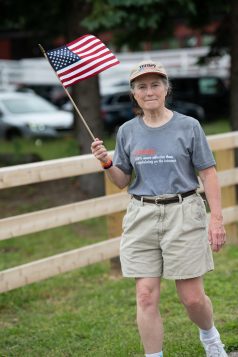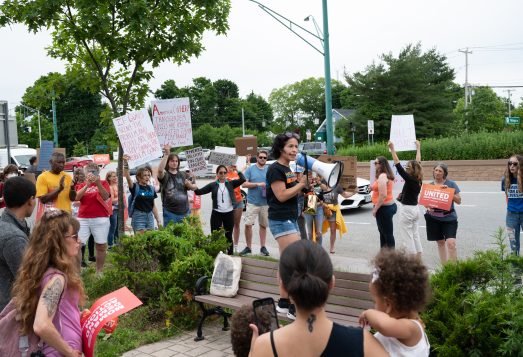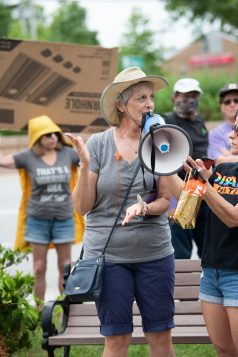The following incidents have been reported by Suffolk County Police:
Centereach
■ Walgreens on Middle Country Road in Centereach reported that a man and a woman allegedly stole laundry detergent worth $375.
Cold Spring Harbor
■ A 2020 Jeep Cherokee was reported stolen from the driveway of a resident on Ridge Road in Cold Spring Harbor on June 9. The key fob had been left in the vehicle. The car was worth approximately $35,000.
■ A resident on Fox Hunt Lane in Cold Spring Harbor reported that his vehicle, a 2015 Chevy Camaro, was stolen from his driveway on June 8. The key had been left in the center console and the car was left unlocked. The vehicle was valued at $18,000.
Commack
■ Walmart on 85 Crooked Hill Road in Commack reported a shoplifter on June 6. A woman allegedly stole $193 worth of assorted household items.
■ Home Depot on Jericho Turnpike in Commack called the police on June 7 to report that a man allegedly stole a roll of landscaping wire, a Wyze doorbell, a coaxial cable and a Ring doorbell battery pack. The total value of the items was approximately $650.
■ A gang box was broken into at a building under construction on Hauppauge Road in Commack on June 8 and a Hydroguard brass mixing valve worth $3,000 was stolen.
■ A resident on Grace Park Drive in Commack reported that someone entered his unlocked vehicle on June 11 and stole his wallet containing cash and credit cards.
East Setauket
■ Walmart on Nesconset Highway in East Setauket reported a shoplifter on June 7. A person allegedly stole an air conditioner worth $216.
Huntington
■ A 2013 Infiniti worth $10,000 was reported stolen from a driveway on Old Town Lane in Huntington on June 7.
Huntington Station
■ Macy’s on Walt Whitman Road in Huntington reported a petit larceny on June 9. Two women allegedly stole assorted clothing valued at $700.
Melville
■ A resident on Louis Drive in Melville reported on June 9 that he left his 2020 Land Rover Range Rover running in his driveway unattended. An unknown person walking by got into the car and drove away. The vehicle was valued at $40,000.
Miller Place
■ A resident on Jonah Road in Miller Place reported that a dirt bike, 1999 Honda CR50 was stolen from a backyard shed on June 7. The dirt bike, valued at $900, was later recovered from a nearby wooded area.
Mount Sinai
■ A resident on Maureen Drive in Mount Sinai reported that someone entered his vehicle on June 6 and stole assorted golf clubs and equipment.
■ A resident on Ross Lane in Mount Sinai called the police on June 7 to report that someone had entered his unlocked vehicle parked in the driveway and stole a laptop, backpack, wallet and cash. Items were also stolen from a vehicle parked on Quail Run the same day.
Selden
■ Hope Lutheran Church on Dare Road in Selden reported the theft of a bench worth $200 from the church garden on June 8.
■ BP Gas Station on Middle Country Road in Selden was the victim of a burglary on June 8. An unknown man allegedly broke the front glass door to gain entry and stole 60 packs of Newport cigarettes valued at $750 and assorted lottery scratch-off tickets worth $250.
■ Home Depot on Middle Country Road in Selden reported a shoplifter on June 11. A man allegedly stole a DeWalt table saw worth $650.
Shoreham
■ Multiple residents on Michelle Drive, Woodville Road and Tagliabue Road reported that their unlocked vehicles were entered on June 6 and 7 and items and cash were stolen.
South Setauket
■ Target on Pond Path in South Setauket reporter a shoplifter on June 10. A man allegedly stole a Haier Air Conditioner valued at $180.
■ A shoplifter was reported at Home Depot on Pond Path in South Setauket on June 7. A man allegedly stole a LG Air Conditioner valued at $459.
Stony Brook
■ A resident on Midfield Street in Stony Brook reported the theft of a 120 gallon propane tank from his backyard on June 8. The tank was valued at $300.
Suffolk County Crime Stoppers offers a cash reward for information that leads to an arrest. Anyone with information about these incidents can contact Suffolk County Crime Stoppers to submit an anonymous tip by calling 1-800-220-TIPS.
— COMPILED BY HEIDI SUTTON



























































